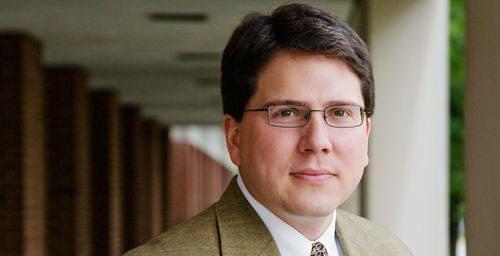Donald Verrilli and Puerto Rico
By: Sean Anderson

Sean Anderson
Donald Verrilli, the Solicitor General of the United States, is probably accustomed to criticism. When you run the office responsible for representing the U.S. government before the Supreme Court, making everyone happy is just not in the cards. Usually, though, the criticism is limited to a fairly small circle of lawyers, journalists, and others who follow the Supreme Court closely.
With a brief filed late in December, Verrilli created a different, more public kind of stir, among citizens of Puerto Rico and others concerned with the legal and political status of that island. The brief was part of a case testing whether it violates the Constitution’s Double Jeopardy Clause for both the federal government and the government of Puerto Rico to prosecute a criminal defendant for the same conduct. In urging the Court to say that such dual prosecutions do violate the Clause, the Solicitor General argued that Puerto Rico is not a “sovereign.” In other words, General Verrilli argued that Puerto Rico is not like the fifty states and more than 500 Native American tribes, which are sovereigns for purposes of the Double Jeopardy Clause.
Puerto Rico became a territory of the United States in 1898, when the Treaty of Paris put an official end to the Spanish-American War. The law seems clear that territories, unlike states and tribes, are not sovereigns for purposes of the Double Jeopardy clause. In the wake of World War II, though, with the new United Nations pressing former imperialist powers to shed their foreign colonies, Congress authorized increased self-government for Puerto Rico, and approved a constitution adopted by the people of Puerto Rico in 1952. At the same time, both the federal government and the government of Puerto Rico started referring to the island as a commonwealth, rather than a territory. Many in Puerto Rico have maintained that those changes made the island something more than a mere territory. In addition, many have taken the position that any future changes to Puerto Rico’s powers of self-rule would require the consent of the Puerto Rican government.
Solicitor General Verrilli’s recent brief to the Supreme Court argued, on the other hand, that Puerto Rico is still a territory, albeit one with significant powers of self-government. A necessary implication of that position is that the U.S. Congress could unilaterally revoke some or all of that self-government, although Verrilli hastened to point out that there’s no reason to think Congress would do so.
The arguments in the brief quickly became fodder for ongoing political battles in Puerto Rico. As you might already know, public opinion there is divided among those who favor statehood, those who prefer continuing something like the status quo, and a few who want the island to be independent. Puerto Rico’s governor, who favors the current commonwealth status, accused Verrilli of repudiating promises the federal government had been making ever since the 1952 constitution. The governor’s political opponents, including Puerto Rico’s non-voting delegate to Congress, pointed to the brief as evidence that Puerto Rico holds a “second-class” position in the U.S. and needs to push for statehood.
This particular firestorm will probably die out quickly, but the question of Puerto Rico’s status will certainly come up again.

